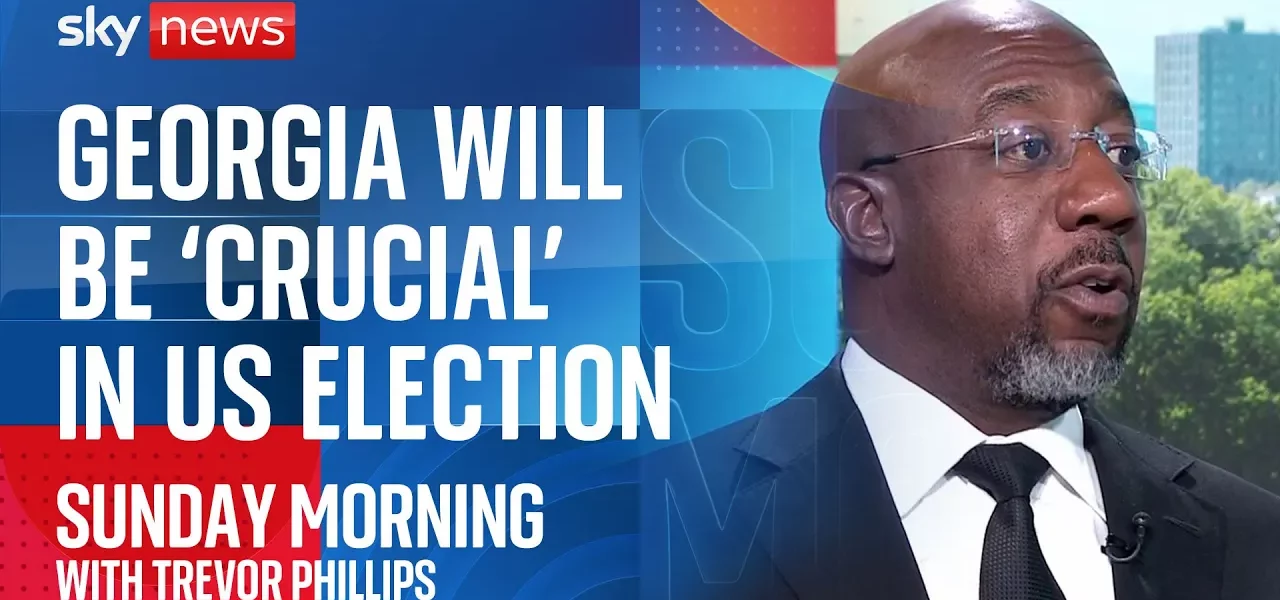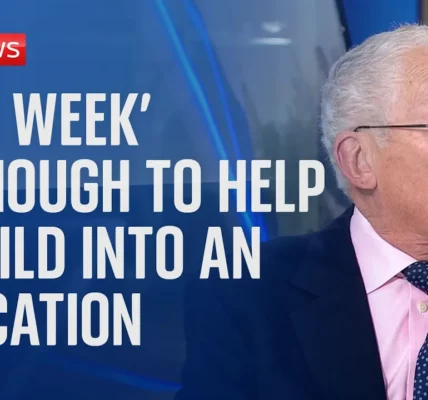Reflections on Race and Justice: Senator Raphael Warnock Discusses Martin Luther King’s Legacy

This article delves into the impactful conversation with Senator Raphael Warnock regarding the ongoing relevance of Martin Luther King’s teachings in today’s society, the state of race relations in America, and the implications for the upcoming presidential election.
Introduction
In a recent conversation, Senator Raphael Warnock, the first African-American senator from Georgia, expressed his profound sadness over the death of an American hostage in the Middle East, while also reflecting on the legacy of Dr. Martin Luther King Jr. As he prepares to deliver a sermon in London commemorating King’s historic “I Have a Dream” speech, Warnock emphasizes the enduring significance of King’s message in the context of current social and political challenges. This discussion touches on themes of race, equality, and justice that remain vital in both the United States and abroad.
The Heartbreak of Hostage Situations
Senator Warnock began his remarks by expressing his condolences to the family of the American hostage. He highlighted the pain such tragedies bring and the need for prayers for peace. This sentiment resonates deeply, especially in light of the ongoing conflicts in the Middle East, which continuously affect countless lives.
The Relevance of Martin Luther King Jr.’s Legacy
As Senator Warnock prepares to honor Dr. King’s legacy, he reflects on King’s visit to St. Paul’s Cathedral 60 years ago. The themes of justice and the pursuit of a “Beloved Community,” as envisioned by King, remain pertinent today. Here are some key points regarding the relevance of King’s message:
- Nonviolence: King’s advocacy for nonviolent protest continues to inspire movements for social justice.
- Justice for All: The struggle for racial equality is not confined to the United States; it resonates globally.
- Building Community: A diverse coalition is essential in confronting issues of inequality and division.
Race Relations in America: A Complicated History
The conversation shifted towards race relations in the United States, where Senator Warnock provided insight into why racial issues remain divisive. Despite progress, the complexities of America’s history with race continue to create challenges:
- Historic Barriers: African Americans have faced systemic obstacles, even as leaders have emerged from the community.
- Current Backlash: Recent political events, including insurrections and divisive rhetoric, have highlighted existing tensions.
- Ongoing Struggle: The journey towards racial equality is ongoing, requiring vigilance and commitment to justice.
The Upcoming Presidential Election and Kamala Harris
As the election approaches, Senator Warnock expressed his strong support for Vice President Kamala Harris, emphasizing the importance of Georgia in the electoral landscape. He acknowledged the tight race and the role of Georgia voters in shaping the outcome:
- The election of Warnock and fellow senator John Ossoff flipped control of the Senate.
- Georgia’s demographic shifts make it a pivotal state in the upcoming election.
- Warnock pledges to work tirelessly to ensure Harris’s election, recognizing its significance for the nation.
Future Foreign Policy Under Kamala Harris
Addressing concerns about foreign policy, particularly regarding Israel and Palestine, Warnock noted Harris’s commitment to a two-state solution. He reiterated her stance on Israel’s right to defend itself while also advocating for Palestinian self-determination:
Warnock believes that achieving peace in the region is a complex challenge but remains a critical goal for international relations.
Conclusion
In summary, Senator Raphael Warnock’s reflections on race relations, the legacy of Martin Luther King Jr., and the upcoming presidential election highlight the ongoing struggles and triumphs within American society. His commitment to justice, equality, and community-building echoes King’s teachings and serves as a reminder of the work that lies ahead. As voters prepare for the election, it is vital to reflect on these issues and strive for a future that upholds the dignity and rights of all individuals. Explore more on these topics here.
“`




